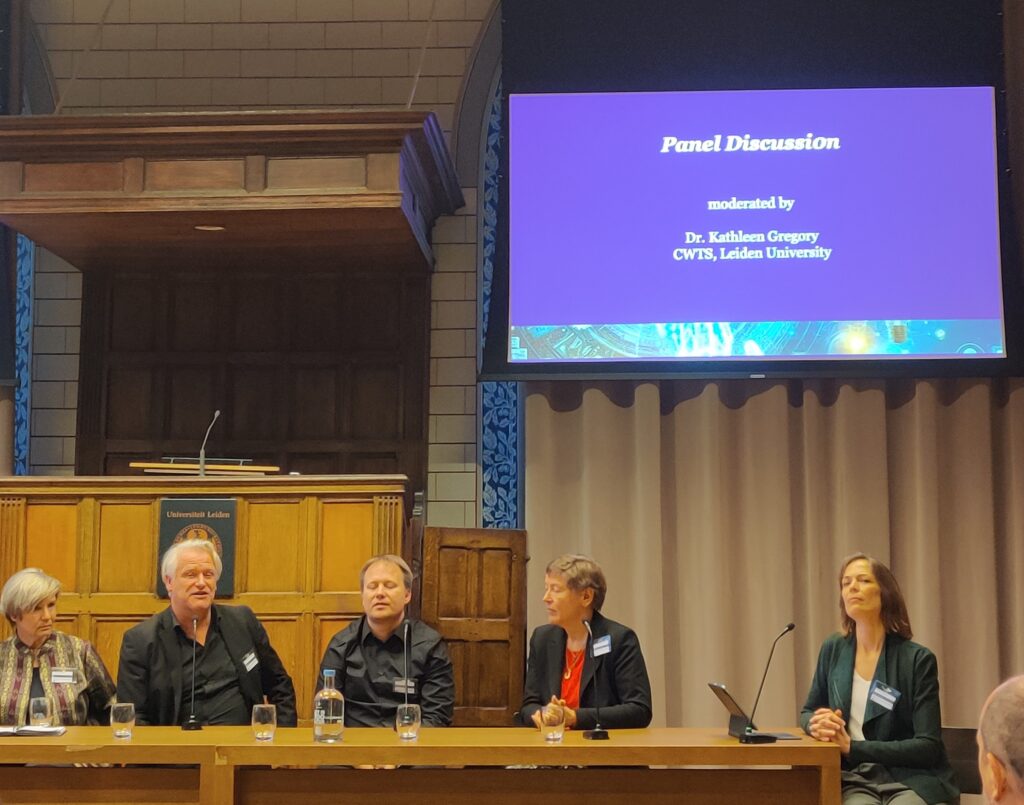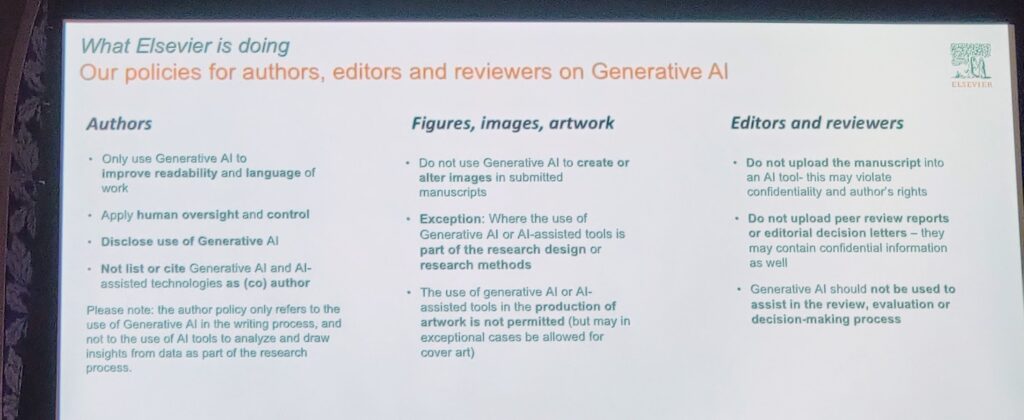This Leiden & Elsevier event had an excellent balance of speakers who engaged with the potential influence of AI on science and publishing.

The conversation was rich, but here are six points I took away from the event.
1) AI as intellectual connector (more than a creator). The history of science is littered with outputs of many different genres (annotations, letters and correspondence, forgotten journal articles). How can we use AI to help find meaning across hundreds of different types of scientific output? (Mike Cook, King’s College London)
2) AI as a research assistant. Metaphor: AI is the horse, and the scientist is the jockey. Can AI and scientist work together to get the scientist there faster? (Catholijn Jonker, TU Delft)
3) A philosophical view: Results from AI are only shadows of the algorithm. We can never fully apprehend or reproduce the algorithm itself; only see its outputs. (Peter van der Putten, Leiden University)
4) The European perspective: AI will change the research process enormously. But the world cannot rely (and be subordinate to) US models for AI. We need to create foundational models in the EU rather than relying on Silicon Valley. But the costs! The next version of GPT requires $5bn to $10bn investment for training. See also https://scientificadvice.eu/advice/artificial-intelligence-in-science/ (Paul Groth, University of Amsterdam)
5) Going beyond the academic paper. Can we present our results in better machine readable ways? Do we really have to write papers according to traditional formats? Do we need to write so many papers? Can we publish automatically, while still maintaining quality and provenance? (Panel discussion moderated by Kathleen Gregory, Leiden University)
6) What is Elsevier doing? Policies: see image. One specific project mentioned: running AI on articles to identify where in the text there are accounts of experiments or where there are specific infrastructures or methodologies used (Anita de Waard, Elsevier)

